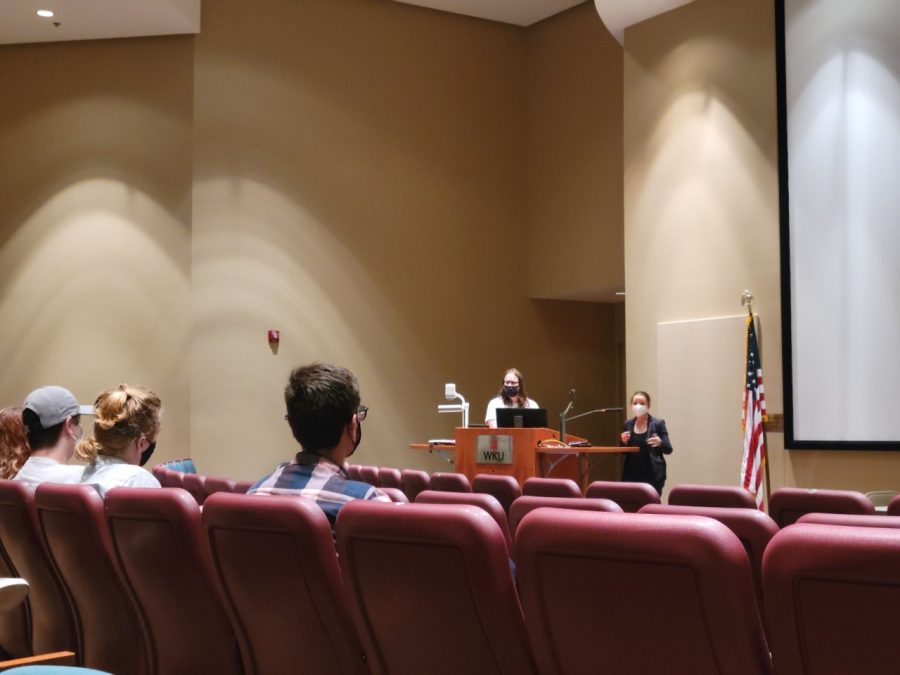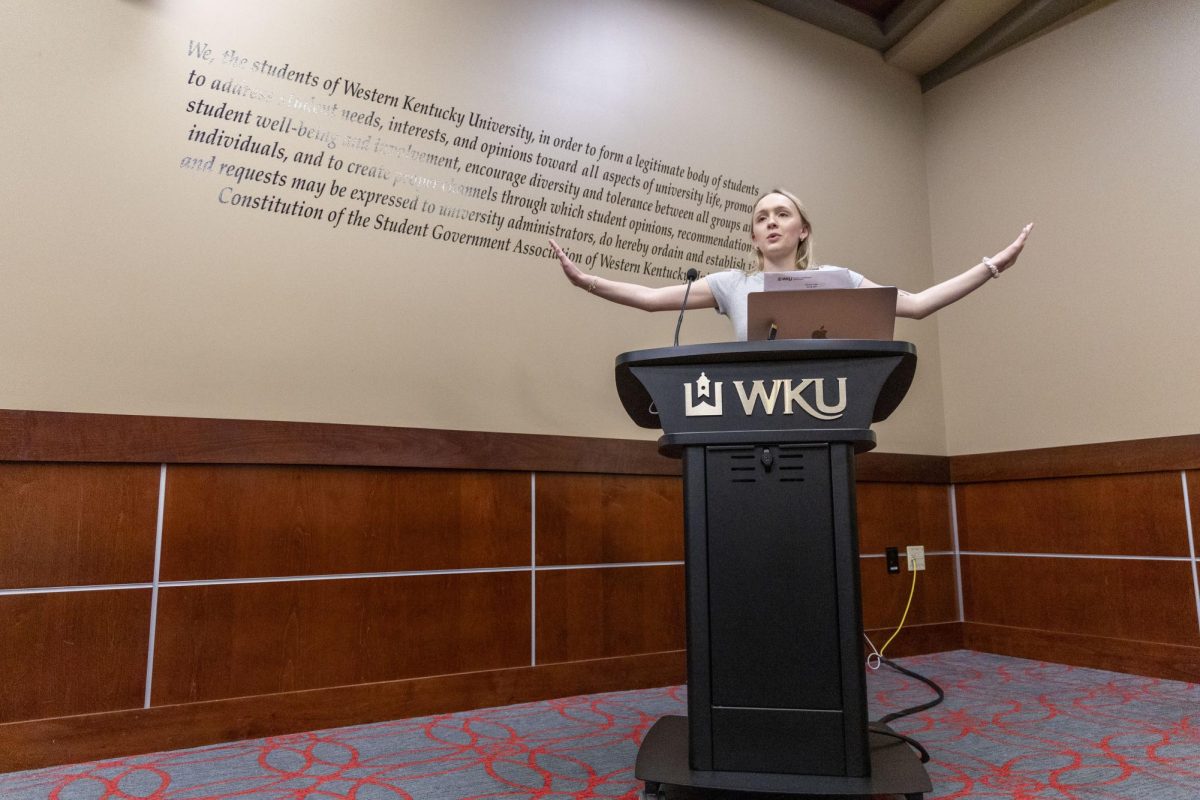Award-winning director speaks at film screening on campus
September 22, 2021
A film screening of the documentary “Hillbilly” was held on Sept. 21 in the Jody Richards Hall auditorium. The writer, director and producer of the film, Ashley York, watched the film alongside students then held a Q&A session about the documentary.
The core reason behind the film was to educate on the culture of Appalachia, show the harmfulness of the stereotypes of a “hillbilly” and uncover how the media and other Americans view poverty and the rural identity.
York, having grown up in a small town in eastern Kentucky, created this film with previous understanding of the culture but placed it in the lens of a feminist eye.
York tells a poignant story in this film through interviews with self-identified “hillbillies”, including her own family, friends and Billy Redden, best known as the banjo player in the prominent hillbilly stereotyping movie “Deliverance.”
“There’s only so much you can do in a feature film,” York said during the Q&A. “I feel like we made way for this broad range of perspectives to be shown. There are so many different folks within that region, it’s not just where white people live or where coal mining is or where there are no people of color, so I feel like the fact that our movie could show those perspectives is incredible.”
The film not only focuses on Appalachian culture, but in one section, it explains why support of former President Trump was so prevalent in Appalachian communities during the 2016 election. This section gave the documentary an investigative quality and the ability to look beyond the surface level of this subject.
“We wanted the film to reach urban audiences, and we did some very specific impact work around that,” York said. “We happened to get into the LA Film Festival, and we won the grand jury prize. We’ve heard people from all around say they are so grateful for this movie.”
At this screening, York also premiered her short film “Appalachia Futures” written in collaboration with the STAY project. This film is being exhibited by the Smithsonian in its Futures exhibit, a museum section dedicated to telling the diverse stories about the world we live in, which will open in November of this year.
“You always want your work to connect your audiences and you want to write in ways they might not expect,” York said. “Of course, in the conversations that we’ve had I’ve learned from the audiences and what they have thought about the film and what speaks to them. My experience is in the film, but mine is not alone, and it’s not meant to represent every appalachian.”
News reporter Alexandria Anderson can be reached at alexandria.anderson337@topper.wku.edu.













